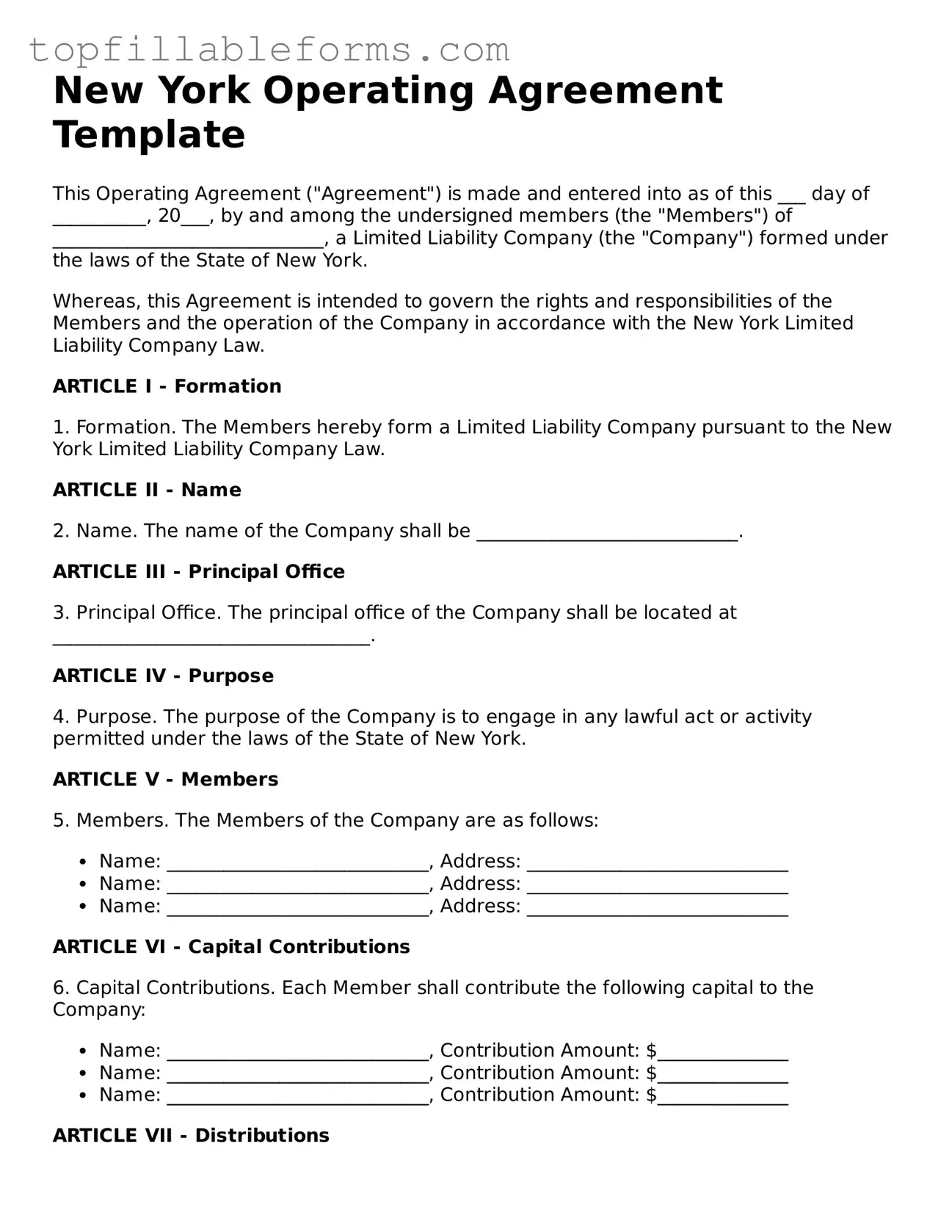Attorney-Verified Operating Agreement Template for New York
The New York Operating Agreement is a vital document that outlines the management structure and operational procedures of a limited liability company (LLC) in New York. This agreement serves as a roadmap for the members, detailing their rights and responsibilities while fostering a clear understanding of how the business will be run. By establishing these guidelines, the Operating Agreement helps to prevent conflicts and ensures smooth operations within the LLC.
Open Operating Agreement Editor Here

Attorney-Verified Operating Agreement Template for New York
Open Operating Agreement Editor Here
Finish the form now and be done
Finish your Operating Agreement online by editing, saving, and downloading fast.
Open Operating Agreement Editor Here
or
▼ PDF File
